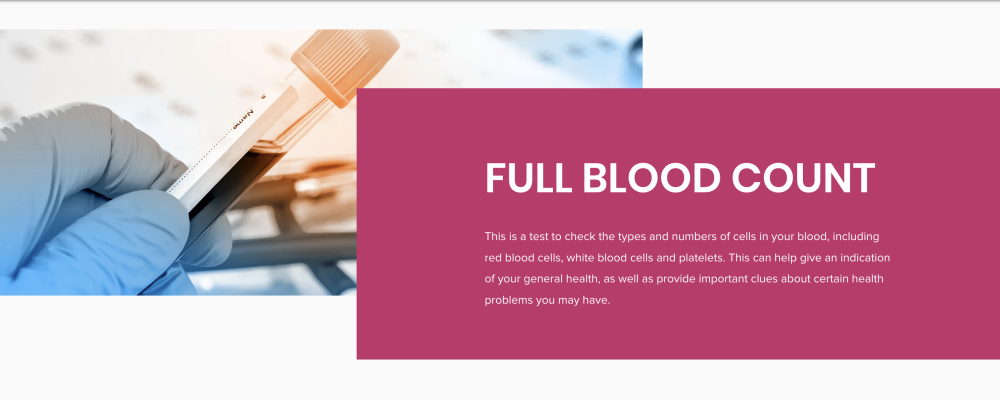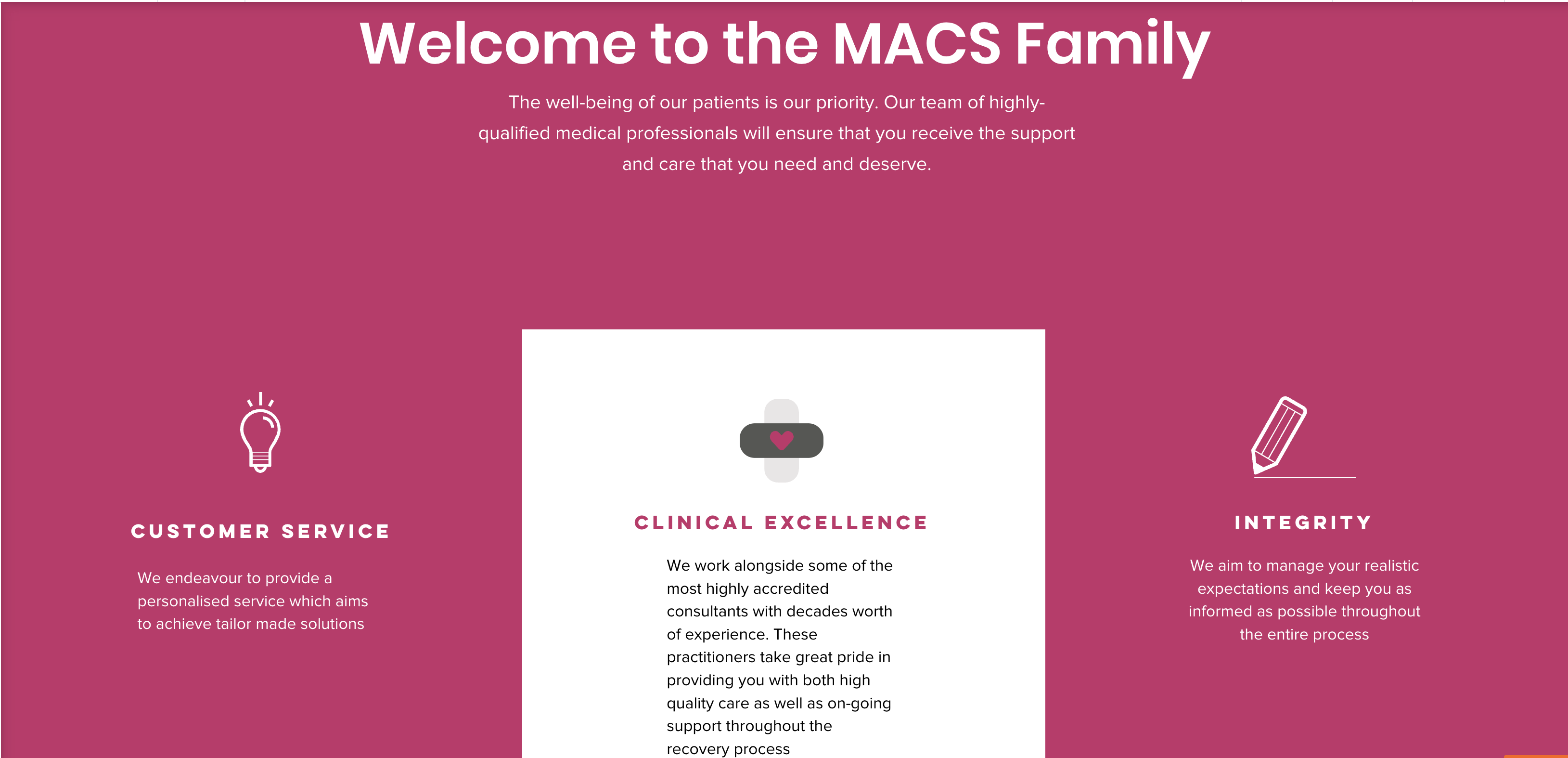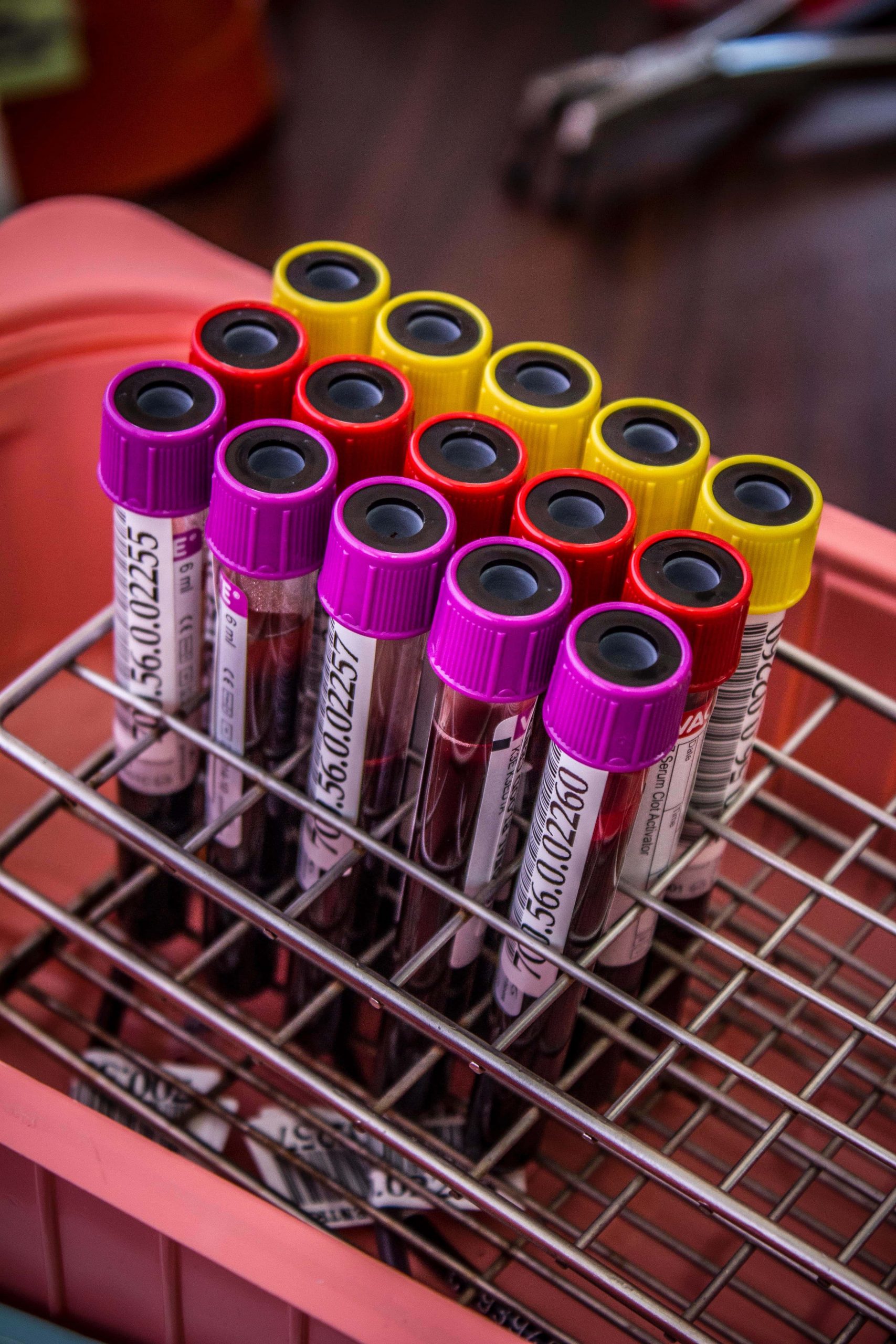

About the test
Nutritional Test will include the following:
Vitamin D
Detail: Vitamin D is a fat-soluble vitamin that is important for bone health, immune function, and overall health. It is produced by the body when the skin is exposed to sunlight and is also found in certain foods and supplements.
Symptoms: Low levels of vitamin D in the blood can cause bone pain, muscle weakness, fatigue, and an increased risk of bone fractures. However, there may be no symptoms in some cases.
Solutions: To increase vitamin D levels, it’s important to get enough sunlight exposure or take vitamin D supplements. Foods that are rich in vitamin D include fatty fish, egg yolks, and fortified dairy products.
Vitamin B12
Detail: Vitamin B12 is a water-soluble vitamin that is important for the nervous system, red blood cell production, and DNA synthesis. It is found in animal products and some fortified foods.
Symptoms: Low levels of vitamin B12 in the blood can cause fatigue, weakness, numbness or tingling in the hands and feet, difficulty walking, and memory problems. However, there may be no symptoms in some cases.
Solutions: To increase vitamin B12 levels, it’s important to eat foods that are rich in vitamin B12, such as meat, fish, eggs, and dairy products, or take vitamin B12 supplements. In some cases, vitamin B12 injections may be prescribed by a doctor.
Folic Acid
Detail: Folic acid, or folate, is a water-soluble B vitamin that is important for cell growth and development, DNA synthesis, and red blood cell production. It is found in leafy green vegetables, fruits, beans, and fortified grains.
Symptoms: Low levels of folic acid in the blood can cause fatigue, weakness, pale skin, shortness of breath, and a decreased ability to fight infections. It is also important for pregnant women to have adequate levels of folic acid to prevent birth defects.
Solutions: To increase folic acid levels, it’s important to eat a healthy diet that is rich in folate, such as leafy green vegetables, fruits, beans, and fortified grains. Folic acid supplements may also be prescribed by a doctor.
Vitamin B6
Detail: Vitamin B6 is a water-soluble B vitamin that is important for brain function, the nervous system, and the immune system. It is found in a variety of foods, including meat, fish, fruits, and vegetables.
Symptoms: Low levels of vitamin B6 in the blood can cause skin rashes, cracks at the corners of the mouth, confusion, and depression. However, there may be no symptoms in some cases.
Solutions: To increase vitamin B6 levels, it’s important to eat a healthy diet that is rich in vitamin B6, such as meat, fish, fruits, and vegetables. Vitamin B6 supplements may also be prescribed by a doctor.
Iron Studies
Detail: Iron studies are a group of blood tests that measure the levels of iron in the blood and how it is being used by the body. These tests can include serum iron, ferritin, transferrin, and total iron-binding capacity (TIBC).
Symptoms: Low levels of iron in the blood can cause fatigue, weakness, shortness of breath, and an increased risk of infections. High levels of iron in the blood can cause joint pain, fatigue, and abdominal pain.
Solutions: The treatment for low iron levels may include dietary changes, such as eating more iron-rich foods like red meat, spinach, and beans, or taking iron supplements. In some cases, a doctor may prescribe intravenous (IV) iron. For high iron levels, treatment may include reducing iron intake or phlebotomy which is a procedure that involves removing blood from the body.
Magnesium
Detail: Magnesium is an essential mineral that is important for muscle and nerve function, blood sugar regulation, and bone health. It is found in a variety of foods, including nuts, seeds, whole grains, and green leafy vegetables.
Symptoms: Low levels of magnesium in the blood can cause muscle cramps, tremors, fatigue, and an irregular heartbeat. However, there may be no symptoms in some cases.
Solutions: To increase magnesium levels, it’s important to eat a healthy diet that is rich in magnesium, such as nuts, seeds, whole grains, and green leafy vegetables. Magnesium supplements may also be prescribed by a doctor.
Phosphates
Detail: Phosphates are a group of minerals that are important for bone health, energy production, and cell signalling. They are found in a variety of foods, including meat, fish, dairy products, and whole grains.
Symptoms: Low levels of phosphates in the blood can cause weakness, bone pain, and an increased risk of fractures. However, there may be no symptoms in some cases.
Solutions: To increase phosphate levels, it’s important to eat a healthy diet that is rich in phosphates, such as meat, fish, dairy products, and whole grains. In some cases, phosphate supplements may be prescribed by a doctor.
Calcium
Detail: Calcium is a mineral that is important for bone health, muscle function, and nerve function. It is found in a variety of foods, including dairy products, leafy green vegetables, and fortified foods.
Symptoms: Low levels of calcium in the blood can cause muscle cramps, weakness, and an increased risk of fractures. However, there may be no symptoms in some cases.
Solutions: To increase calcium levels, it’s important to eat a healthy diet that is rich in calcium, such as dairy products, leafy green vegetables, and fortified foods. Calcium supplements may also be prescribed by a doctor. It’s important to note that too much calcium can also be harmful, so it’s important to follow your doctor’s recommendations on calcium intake.


Getting blood tests done at MACS clinic is the best choice for accurate, comprehensive and expertly interpreted results. Unlike at-home kits our medical professionals are trained to handle blood samples properly, ensuring accurate results. With same-day appointments and fast results, MACS clinic offer the ultimate convenience. Plus, we have access to a wider range of tests, giving patients a more complete picture of their health. Choose the reliability and expertise of MACS clinic today and get peace of mind knowing your health is in good hands!


The turnaround time for test results can vary depending on the specific test being conducted. However, we strive to deliver results as quickly as possible. Most routine blood tests are typically processed within 24 to 48 hours.
No, you do not need a doctor’s referral to get tested at MACS Diagnostics. We welcome both self-referred individuals and those referred by healthcare professionals. However, we recommend consulting with your healthcare provider for appropriate test selection and interpretation.
MACS Diagnostics accepts a wide range of insurance plans. However, coverage may vary depending on your specific insurance policy. We encourage you to contact your insurance provider to understand your coverage and any potential out-of-pocket expenses.
Scheduling an appointment with MACS Diagnostics is easy. Use our online form after selecting any of our tests, pick a date and you will receive the information needed.
At MACS Diagnostics, we prioritise accuracy and precision in all our tests. Our laboratory utilises state-of-the-art equipment and follows stringent quality control measures to ensure reliable results with a high level of accuracy.
MACS Diagnostics provides a wide range of blood diagnostics services, including comprehensive blood tests, infectious disease screenings, genetic testing, hormonal assessments, and specialised tests for specific medical conditions.
Rarely, some people feel faint during a blood test. Tell the person doing the test if you feel faint, as you should immediately lie down to prevent fainting
This depends on the sort of tests you are having done. Many tests can be done on the same sample of blood, so you do not need to have a single bottle for each one: The bottles do not necessarily have to be completely filled either.
• The vein used for blood sampling is usually on the inside of your elbow or the back of your wrist.
• A tight band (tourniquet) is usually placed around your upper arm. This makes the vein fill with blood and makes it easier for the blood sample to be taken.
• The skin over the vein may be cleaned with an antiseptic wipe.
• A needle is then inserted into the vein through the clean skin, causing a sharp pricking sensation. The needle is connected either to a syringe, or directly to blood sample bottles.
• The tourniquet is undone. When the required amount of blood is taken, the needle is removed. The small wound is pressed on with cotton wool for a few minutes to stop the bleeding and prevent bruising. A sticking plaster may be put on. The blood is placed in bottles. There may be a slight ache following a blood test.
Free video/face to face consultation
with consultant plastic surgeon
Please fill in your details and we will get back to you.